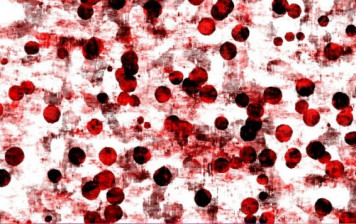
Mark Scheel
If there has been one great political lesson the twentieth century has taught us, surely it is the undeniable truth of Lord Acton’s dictum, “Power tends to corrupt, and absolute power corrupts absolutely.” We have seen notable examples in our recent history. It would seem only logical, then, that a benevolent thinker on the cusp of the twenty-first century would naturally distrust and eschew those political systems embracing some form of “central planning” warned about by F. A. Hayek and be drawn instead to one variety or another of a “classical liberal” or libertarian alternative.(1) Those words “individual freedom,” when set against the term “totalitarianism,” do possess an appealing ring. But as the post-9/11 world has revealed, liberty does come with its own set of challenges.
Although throughout much of the 1990s a segment of the political sympathies in the US aligned with a libertarian spirit, over time, particularly with the Libertarian Party’s paltry response to 9/11, certain inadequacies in any strict adherence to that outlook began to reveal themselves. A libertarian system, almost by definition, presupposes a citizenry that is already educated, moral, ethical, informed, self-disciplined and respecting of the natural rights of every individual within that system. In that regard, it would seem to be a reward for a well-developed society rather than the beginning point for nurturing one.
Specifically, weaknesses in two main areas of libertarianism can be challenged. The first concerns exactly how a free society can inculcate a moral point of view among its people, especially the youth, such that the interactions within that society can be conducted from a common frame of reference. The second is the question of how a free society deals with citizens who refuse to observe its basic precepts in their conduct toward their fellow citizens. Under scrutiny it appeared that libertarianism could offer no satisfactory practical answer to either.
The third way
The Communitarian Network, founded by Amitai Etzioni in 1990, is a nonpartisan, nonsectarian, transnational coalition of individuals and organizations who have come together to shore up the social, moral and political environment.(2) The Institute for Communitarian Policy Studies, based at the George Washington University, Washington, D.C. and headed by Etzioni, is a research organization dedicated to finding constructive solutions to social problems through morally informed policy analysis and open moral dialogue, bringing the best scholarship and analysis to bear on policy issues affecting family, schools, the community and the moral climate of society.
The Network and the Institute recognize that humans are first and foremost social beings with social needs to be addressed. People do, and should-regardless of individual preferences concerning degrees of autonomy-always exist within the body of a society. Furthermore, especially appealing to persons of faith was their recognition that man is additionally a moral and spiritual being. And any societal system that fails to take that into account is doomed to unravel.
The communitarian movement began to be more widely referenced in the political literature and discourse of the mid–1990s. Perhaps the greatest charge that could be leveled against communitarianism is its lack of specificity. It might be characterized as an attitude, not a policy-long on theory and ideals and short on practical detail, lacking a clear mechanism to effect its vision. Nevertheless, in 2003 a serendipitous chain of events commenced that would lead me to a whole new assessment of the possibilities for a living communitarian imperative.
The Turkish connection
Following the explosion of the evolution/education debate of 2000 in Kansas, I joined an Internet listserv to keep abreast of the ongoing controversy. I was intrigued by the frequent postings of a Turkish Muslim in Istanbul, a rising young journalist named Mustafa Akyol. We struck up an e-mail friendship and working journalistic relationship, which in turn led to my acquaintance with a group of Turkish students in my local area who were associated with the Institute of Interfaith Dialog (IID)-an organization promoting the vision of compassion, education and peace espoused by the Turkish spiritual leader M. Fethullah Gulen. This connection eventually resulted in my joining with a group of clergy in December 2005 for an eleven-day tour of Turkey to witness the Gulen philosophy in action. It was for me an experience of profound import.
What the tour provided to the participants was an opportunity to experience directly the history, culture, faith and people from which the Gulen movement has taken root and flourished. We were privileged to visit Istanbul, Izmir, Antalya, Konya, Ankara, Gaziantep, Urfa and Harran. At every stop, the occasion for personal interaction with people was made available and encouraged, especially during home visits. Guides were at our elbow at every turn to answer our many questions and serve as interpreters.
The inspiration for the movement, M. Fethullah Gulen is often referred to as the “Mahatma Gandhi of Turkey” and “the modern Rumi.” Fethullah Gulen is a teacher, Islamic scholar, thinker, prolific writer and poet of broad and significant influence. The topics of his speeches and writings range beyond religious matters to include education, science, history, economics and social justice. His efforts in world interfaith dialogue and interfaith education have been groundbreaking and monumental. Gulen has observed, “There are so many things we have in common to emphasize.”(3) A unique aspect of the movement inspired by his teachings is that it is self-sustaining and self-proliferating, not dependent upon the charisma of its founder but rather upon the efficacy of his vision.
A communitarian cousin
The core of the Gulen philosophy is a theistic view of the universe-specifically a moderate Islamic one, but one compatible with the other Abrahamic faiths-and of the moral order of man descending from that recognition of God. Gulen’s perspective on individualism contrasts with the libertarian stance:
It is impossible to have unrestricted individualism. This is because humans are either both free with no acceptance of any moral values and rebellious with no moral criteria, or they are servants who are dependent on God and seriously obedient to His commands.(4)
Much of his religious writing refers to Christian and Judaic, as well as Qur’anic, sources. The central corollary of his view on freedom and the individual is a great emphasis on education from cradle to grave. This education encompasses the whole person-intellectually, physically, emotionally and spiritually-and is geared toward invigorating the person’s heart and soul as well as mind, and to achieving competence useful to both her/himself and others. This education takes place optimally within the context of a strong family structure, a historical heritage and a democratic polity.(5) It awakens the individual’s sense of responsibility because, according to Gulen, “Connecting or relating action to responsibility gives action its primary humane dimension.”(6)
This vision has spawned a host of humanitarian efforts on an international scale. More than seven hundred Gulen-inspired schools of every academic level, where students of all faiths are taught together (without religious indoctrination), often by teachers of Turkish background, have sprung up across Turkey and in other countries on every continent. The emphasis is on academic excellence, and students in Gulen-inspired schools take trophies in science, math, biology, chemistry and physics at World Olympiads. Gulen was quick to recognize the importance of mass media to society and helped found the Journalists and Writers Foundation in 1994. In the area of health care, Glen-inspired hospitals have been established.(7) In the interests of world peace and understanding, numerous intercultural and interfaith dialogue activities have been established. Businessmen and industrialists, grassroots and community leaders have rallied to his call to fund and support the creation and maintenance of these programs. A community spirit of good will and desire for harmony and progress permeates the vision and activities of the Gulen movement.(8)
So, might there be a correlation with communitarian philosophy in Gulen’s perspective? A reading of The Responsive Communitarian Platform reveals the communitarian movement’s most salient concerns: the reciprocity of social life; renewed moral values; the importance of historical context; strong, participatory democracy; a vibrant family structure; schools and education; government involvement guided by degree of necessity; responsibilities of citizenship; protection of human rights; social justice; public safety and public health; and internationalizing the primacy of human community.(9) It is a sensible outline of focus areas for community-minded attention that could indeed mesh well with the aims of the Gulen movement. In the words of Gulen himself, speaking of a spiritually-centered life, “Order is evident in every effort, and compassion resides in every achievement.”(10) Elsewhere in an interview he states, “Personal and social responsibilities are inter-related…the life of heart and spirit, and social and governmental issues are all facets of one unit.”(11) Words which, it strikes me, apply equally to Glen’s vision and the communitarian platform.
A communitarian fertile ground
What cultural milieu might best be suited to fostering a communitarian approach? Might the land which nurtured the heart and soul of Fethullah Gulen be a candidate? Although all societies to one degree or another bear some burden of past injustices and current internal strife-Turkey being no exception as is vividly depicted in Pamuk’s novel Snow (2004)-a focus on, and examination of life and interaction at the local, community level can yield propitious insights regarding communitarian possibilities.
The modern Republic of Turkey dates back to 1923 and owes much of its progressive societal advancements to the efforts of its revered founder, Mustafa Kemal Ataturk; however, the legacy of the once extensive Ottoman Empire still exerts a measurable influence on the area which was once at its heart.(12) One quickly comes to appreciate certain bedrock strengths evident throughout the culture. To begin with, while Turkey prides itself on its secular governance, religiosity in daily life is pervasive. The call to prayer defines the structure of each day and provides a commonality to the flow of life. The moral obligations of one man to another, as revealed in the Qur’an, are taken very seriously and inform interactions at all social levels. Discretion is left to the individual in matters such as drinking alcohol or wearing the headscarf, but a spirit of comity is instilled at an early age and is evident everywhere, especially in domestic hospitality. When one is invited to a Turkish home for a meal, one comes away not only with a satisfied palate but also with a storehouse of good stories and lovely gifts. Tesekkür ederim, which means “thank you,” are the first Turkish words learned and the most frequently employed.
A great deal of emphasis is placed on individual responsibility and self-reliance throughout Turkish society. Family structure is extended, and sons are expected to care for their old. The family is also obliged to direct the religious training of the young and to oversee their schooling and education. Welfare assistance, when necessary, is often administered anonymously family to family or through the local mosque.(13)
The culture is rich with charming observances and customs that reveal a concern and charity toward one’s fellow human. The beautiful fruit trees and water fountains in public spaces, of which anyone may avail themselves without charge, are said to be provided so that no man need be left hungry or thirsty. The concept of neighborhood is inclusive of many dwellings round about any given home, so that a family may quite literally be acquainted with more than a hundred nearby families. On an occasion such as the Festival of Sacrifice, neighbors visit one another and exchange the meat from the sacrifice. That would seem to be, indeed, the very definition of “community.”(14)
Historically, the area now occupied by Turkey has been both a geographic and a cultural bridge between Europe and the Middle East. Countless armies and evangelists have crisscrossed these mountains and shores leaving behind their legacy in stone. The Turkish people are mindful always to take pride in and preserve their archeological treasures as stones in the foundation of their modern civilization.(15) All in all, Turkey is a modern nation on a par with its European brethren, yet at the same time retaining many of its classical traditions. Its strength as a nation of caring people derives from its moderate form of Islam, the secular reforms of Ataturk and, now, the compassionate vision of Gulen.
During our visit there as we were departing a Turkish home one evening, an American priest remarked to me, “You know, there’s a ‘communitarian’ flavor to all of this.” This observation is shared by a number of other religious scholars writing on Glen and Turkey. Dr. Tom W. Boyd at the University of Oklahoma argues, “Gulen’s strategy is predominantly communitarian.”(16) Marie-Elisabeth Maigre, alluding to Gulen’s analogy of society as an organism with interrelated parts “in need of one another,” characterizes his view as “a communitarian vision of society.”(17)
A call for action
Having been introduced to communitarianism, it was my acquaintance with students associated with the IID and my fortuitous travel to Turkey to experience the land and people that enabled me to envision its practical implementation. At its most fundamental, I see communitarianism as a mind-set and life style of individual social responsibility and reciprocal moral obligation. In many ways, I believe Turkish society infused by the Gulen movement offers a sterling example of this.
I believe with greater public awareness of the communitarian mind-set, its possibilities become manifest. However, achieving that balance in society will demand great joint effort. Nevertheless, it is an effort that can bear sweet fruit, like the trees along the thoroughfares in Turkey, for all. The Turkish word to describe the activities of the Gulen movement is hizmet. That translates into English as “service.” To me, that is a perfect word to describe communitarianism.
Source:
Fountain Magazine, Issue 61 / January – February 2008
This is an abridged version of the paper presented at “Peaceful Coexistence: Fethullah Gulen’s Initiatives in the Contemporary World” conference, conducted at Erasmus University, Rotterdam, November 22-23, 2007. The complete paper can be downloaded at www.gulenconference.nl
Mark Scheel is the prose editor of Kansas City Voices magazine. He is the author of A Backward View: Stories and Poems and recipient of the J. Donald Coffin Memorial Book Award.
Notes:
1.Hayek, F. A. The Road to Serfdom, New York: 1944, Routledge Classics, p. 34. [Last name Hayek first in order.]
2.The Communitarian Network Web site, home page.
3.Ã’nal, Ali, Alphonse Williams (compiled by), Advocate of Dialogue, Virgina: 2000, The Fountain. p. 205.
4.Saritoprak, Z. and Unal, A. (trans.) (2005) “An Interview with Fethullah Gulen.” The Muslim World, 95:3, 447-467.
5.M. Fethullah Gulen, Essays – Perspectives – Opinions, NJ: 2004, compiled by The Light, Inc.
6.Gulen, M. Fethullah, The Statue of Our Souls, The Light, Inc. NJ: 2005, p. 99. [Last name Gulen first in order.]
7.Scheel, M. (2006, April 17) “The Wonder of Anatolia: Land of Ataturk and Gulen.” At: http://www.gather.com/viewArticle.jsp?articleld-281474976745124 [Period at end?]
8.Unal, p. 325.
9.The Communitarian Network Web site, Project and Activities page.
10.Gulen 2004, p. 55.
11.Saritoprak, p. 449.
12.Ergener, R.and Ergener, R. (2002) About Turkey: Geography, Economy, Politics, Religion, and Culture (Boulder, CO: Pilgrims’ Process, Inc.), p. 5.
13.Ibid, pp. 31–37.
14.Ibid, p. 38.
15.Ibid, p. 5.
16.Boyd 2006:48.
17.Maigre, M. (2006, February 17) “The Fethullaci, or the Project of an ‘Enlightened’ Turkey” Islam in Business Web site. http://islaminbusiness.blogspot.com/. (Last accessed September 26, 2007.)
Related Articles

Fethullah Gülen’s “man of action”, Islamic ethics and secular morals
I argue it is exactly here that Gülen links his Islamic ethics to secular morals. To explain this point better I will draw your attention to the connection…

Respecting all despite differences in style and method
Fethullah Gülen: Everyone can and should serve in their own way by remaining respectful to others. We do not have the right to open the door to…

Global Terrorism and Islamic Radicalization: Analyses from Fethullah Gulen’s Perspective
Gulen deems terrorism as the greatest blow to peace, democracy, and humanity and he always condemns any terrorist activity no matter by whom it is carried out or…
